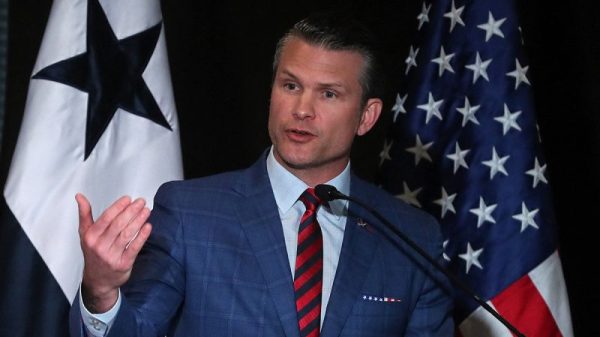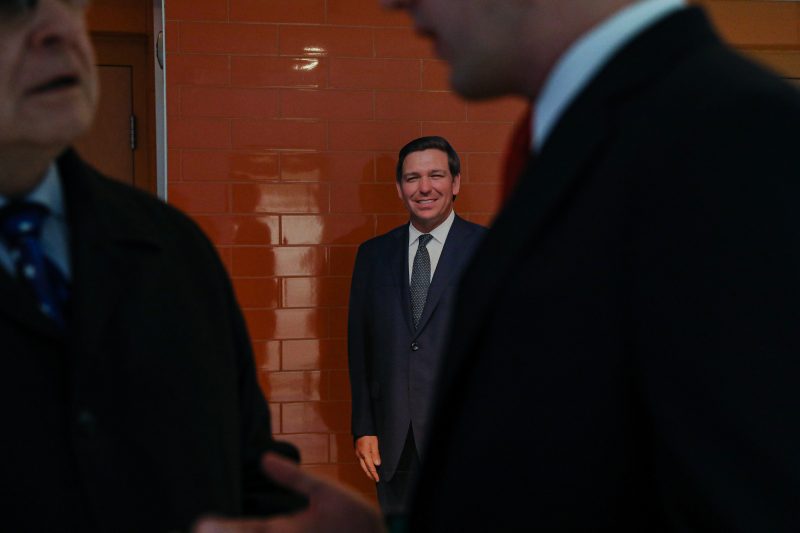There are three obvious reasons that Florida Gov. Ron DeSantis’s presidential campaign promoted an aggressively anti-LGBTQ+ ad on social media last week.
The first is that DeSantis is not making any headway in his efforts to overtake Republican front-runner Donald Trump. In part, this is because DeSantis is competing with Trump for the former president’s base of support on terrain that is continually being defined by Trump. DeSantis’s team undoubtedly pushed out the self-consciously controversial ad knowing it might earn him some much-needed attention — attention in which he could talk about how Trump was unacceptably welcoming of LGBTQ people.
In this regard, the ad has been a success. When “Morning Joe” is outraged about your content, a Republican presidential campaign can consider its mission accomplished. Each time it’s embedded in an article from a news outlet expressing condemnation, two DeSantis staffers high-five.
Then there’s the second reason. The ad is replete not just with cherry-picked examples of Trump attempting to appeal to LGBTQ voters — ignoring, for example, Trump’s angry effort to block transgender people from serving in the military — but with esoteric iconography popular with the online right-wing fringe. Those clips of Christian Bale playing serial killer Patrick Bateman? It’s meant to appeal to reactionary dudes who’ve adopted Bale’s character as a not-entirely-ironic role model.
In other words, there is a sense in which it is just basic demographic marketing, such as McDonald’s using the latest Pixar characters in their Happy Meals. The goal is to present DeSantis as aligned with that verbose community and that they will commend him and share his message.
But, of course, there is another sense in which the Bateman character and other similarly self-conscious manifestations of masculinity seen in the video should be understood. It is an appeal not just to memes popular with that online audience, but to the insecurity that leads to the embrace of characters such as Bateman. Trump has continuously leveraged White anxiety during his time in politics; DeSantis is appealing to male insecurity.
This is a common component of anti-LGBTQ+ commentary and of right-wing politics in general. That Sen. Josh Hawley (R-Mo.) produced a book explicitly outlining the “masculine virtues America needs” (as the subtitle puts it) is a testament to the utility of this message. There are a lot of prospective Republican primary voters who worried that America is somehow becoming unacceptably feminine or at least somehow un-masculine. It’s a trend they see manifested in things such as increased acceptance of gay and transgender people in the United States.
This is not speculative. YouGov has regularly polled Americans to measure the extent to which they see discrimination in the country. In polling conducted in November, it asked about the levels of discrimination faced by men and by women, by lesbian, gay and bisexual people, by transgender people, and by people of different races and faiths.
As you might expect, most Americans see women, LGB and transgender people as facing at least a fair amount of discrimination. Among men, though, the distinction is more subtle. And among people who say they voted for Trump in 2020 — a group that was more heavily male than female — more said that men faced discrimination more than women and more said that White people and Christians faced discrimination than said the same of LGBT people.
Other polling gets at the same sentiment. Data reported by the Wall Street Journal, compiled by NORC, found that about 12 percent of Americans believed the country had gone too far in promoting equality between men and women. Among Democrats, only 2 percent of respondents held that position. Among Republicans, more than a fifth did.
This is what DeSantis is trying to tap into and what he’s defending. There is another version of America possible, this ad offers, one in which REAL MEN get to do real-men things (like be gladiators or, it seems, mass murderers). Enough with this treating LGBTQ people as worthy of inclusion in society. Let’s instead return primacy to real, alpha men! Please like and share.
It’s not clear how much cynicism we should read into the ad, any more than it is clear how much cynicism we should read into DeSantis’s broader adoption of fringe-right politics over the past two years. But this, too, is a theme of modern politics. The distinction between the person who uses antagonistic rhetoric as a tool and the person who uses it out of sincere belief is unimportant to the targets of the antagonism.
There’s a useful quote that captures that sentiment. In 2018, a candidate for office declined to say his opponent was racist. Instead, he said, “the racists believe he’s a racist.”
That was Democrat Andrew Gillum, talking about his opponent in the gubernatorial contest: Ron DeSantis.


































